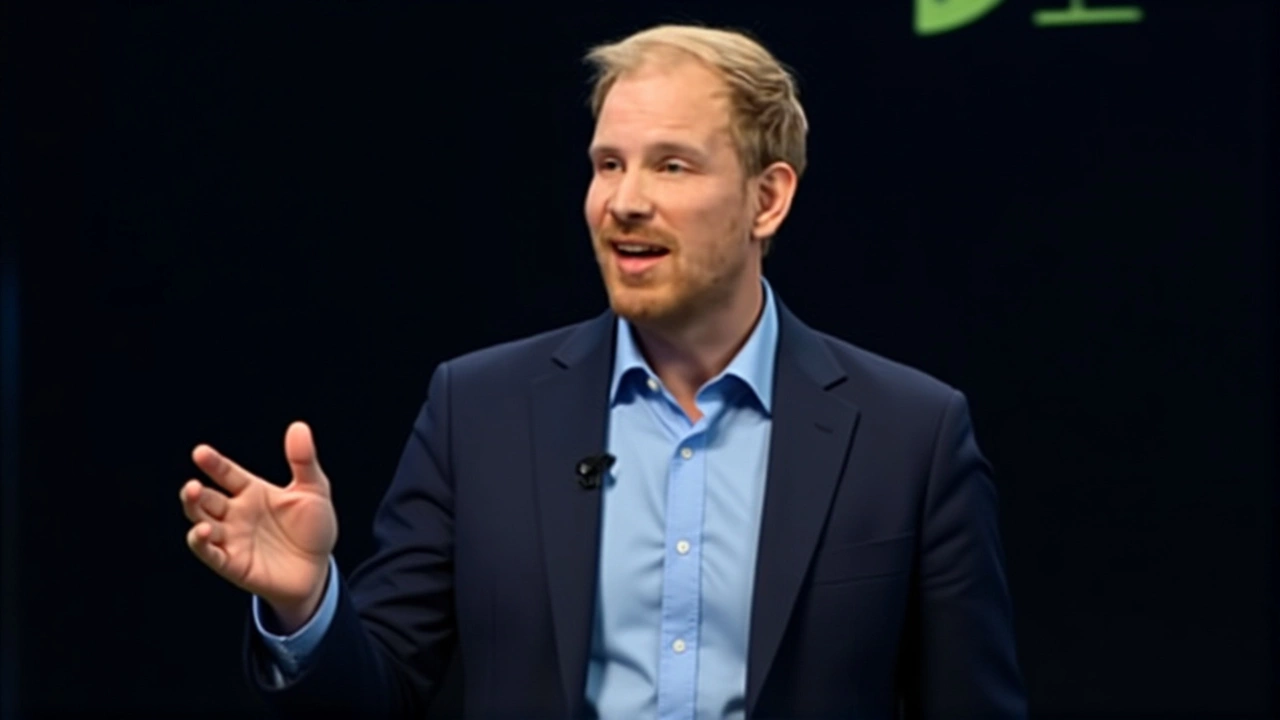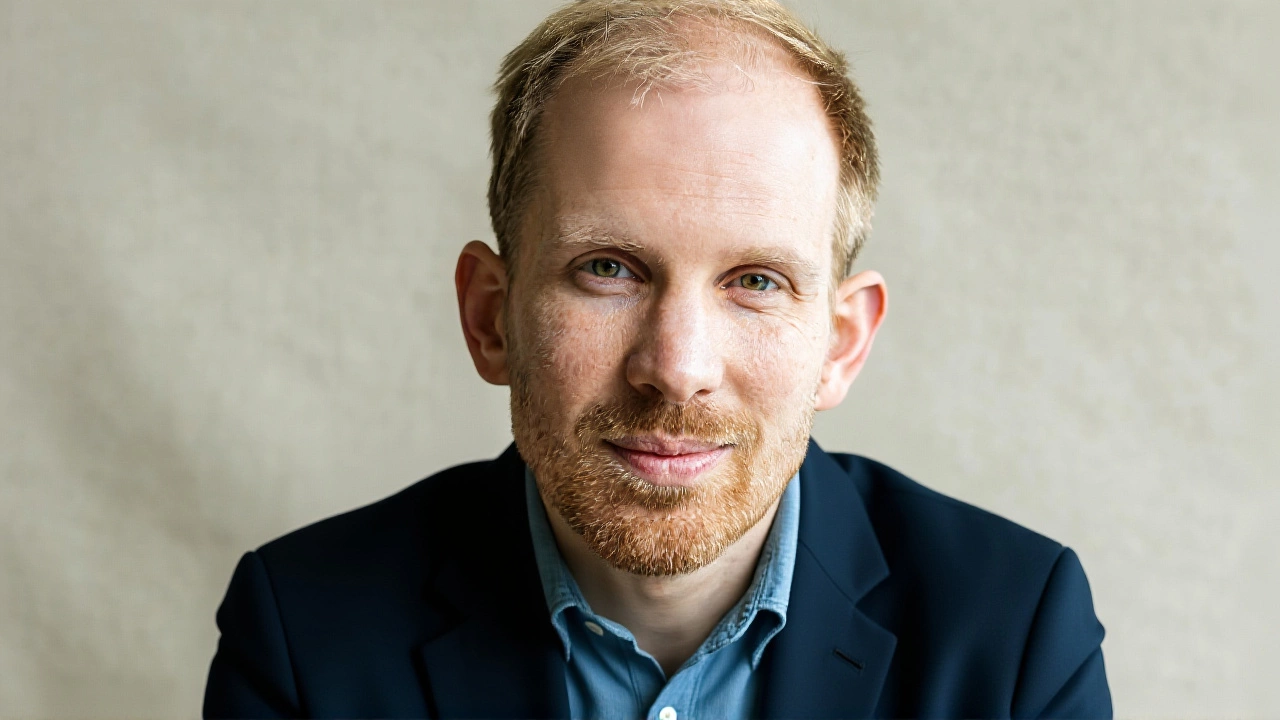On November 11, 2025, Dutch historian Rutger Bregman will step onto the stage at the Oberndorf Event Center in Stanford, California to deliver the most anticipated lecture of the year — not just for academics, but for anyone wondering whether humanity still has a voice in the age of algorithms. His talk, "Fighting for Humanity in the Age of the Machine," is the centerpiece of the 2025 BBC Reith Lectures Stanford Graduate School of Business, a series titled "Moral Revolution." It’s not just another lecture. It’s a public reckoning.
Why This Lecture Matters Now
It’s been over a decade since the 2008 financial crash exposed how deeply greed had infected institutions meant to serve the public. Banks collapsed. Millions lost homes. Executives walked away with bonuses. And yet, little changed. The system didn’t break — it adapted. Now, as AI automates jobs, social media manipulates attention, and corporations prioritize shareholder returns over human dignity, the question isn’t whether we’re losing control — it’s whether we still care enough to fight back.
Bregman, whose books Utopia for Realists and Humankind have sold over two million copies in 46 languages, doesn’t offer easy answers. But he asks the right ones. Why do we assume people are selfish by nature? Why do we accept inequality as inevitable? And what happens when machines start making moral decisions — without conscience, without empathy?
The Stanford Stage: A Global Forum in a Quiet Corner of California
The event is hosted by the Center for Advanced Study in the Social Sciences (CASI) at Stanford, a research hub that quietly shapes global policy debates. The venue, tucked into the sleek glass-and-wood architecture of the Stanford Graduate School of Business at 655 Knight Way, will be filled with students, economists, ethicists, and curious locals. No livestream. No tickets. Just one room, one microphone, and one man ready to challenge the status quo.
Alexis Opferman, an MBA candidate set to graduate in 2026, is the student lead. Her role isn’t ceremonial. She’s helped design the Q&A, curated the audience questions, and pushed back against institutional inertia to keep the event truly open to the public. "This isn’t about prestige," she told a campus newspaper last month. "It’s about making sure the people who will live with the consequences of these technologies get to speak first."
Early Echoes: A Minister’s Wake-Up Call
Long before the Stanford event, Andrew J. Brown, minister at the Cambridge Unitarian Church in England, wrote a blog post titled "On hearing the first Reith Lecture on 'Moral Revolution' by Rutger Bregman." He didn’t just praise it — he wept.
"The 2008 crisis wasn’t a failure of regulation," Brown wrote. "It was a failure of memory. We forgot Jesus’ command to care for the poor. We forgot that profit without purpose is theft." He drew a direct line from the moral decay of Wall Street to today’s AI-driven labor exploitation. "Bregman isn’t offering a new policy," Brown noted. "He’s reminding us that ethics isn’t optional. It’s the foundation."
His reflections echo in the silence between the lines of Bregman’s work: What if the greatest threat to democracy isn’t authoritarianism, but apathy? What if we’ve been sold a lie — that human nature is greedy, and therefore, systems built on greed are inevitable?

The Bigger Picture: Moral Revolution in Practice
Bregman’s lectures won’t just diagnose the problem. He’s already pointing to real-world experiments. In Finland, a four-day workweek trial boosted well-being without cutting productivity. In Canada, pilot programs giving unconditional cash to low-income families reduced stress-related hospital visits by 24%. In the Netherlands, cooperatives now own 17% of the housing market — and their tenants report higher satisfaction than those in private rentals.
These aren’t utopian fantasies. They’re data points. Proof that alternatives exist. The question isn’t whether we can afford to change — it’s whether we can afford not to.
What Comes Next
The full series will be released on the BBC World Service and BBC Radio 4 in late 2025. But the real impact will be measured in the months after. Watch for student-led movements on campuses from Berlin to Buenos Aires. Watch for local governments citing Bregman’s arguments in minimum wage debates. Watch for tech workers walking out, not for higher pay — but for ethical guidelines.
And watch CASI’s next event: "Who Gets to Decide? McKinsey, Power, and Public Consequences," scheduled for the same building. It’s no coincidence. This isn’t just about one lecture. It’s about a chain reaction.

Why You Should Care — Even If You’re Not in Stanford
You don’t need to be a policymaker or a CEO to feel the weight of this moment. Your job might be automated next year. Your data might be sold to the highest bidder. Your child might grow up in a world where kindness is seen as a weakness. Bregman’s message is simple: We built this. And we can rebuild it — if we choose to.
Frequently Asked Questions
What is the BBC Reith Lectures, and why is it significant?
The BBC Reith Lectures, launched in 1948, are an annual series of talks by leading thinkers on matters of contemporary importance. Named after John Reith, the BBC’s first director-general, they’ve featured icons like Bertrand Russell, Margaret Atwood, and Stephen Hawking. Being invited is considered one of the highest honors in public intellectual life — and this year’s focus on moral reform in the digital age makes it one of the most urgent in decades.
How does Rutger Bregman’s work challenge traditional economic thinking?
Bregman rejects the idea that humans are inherently selfish, a core assumption in much of modern economics. Drawing on anthropology and psychology, he argues that cooperation, trust, and altruism are our evolutionary strengths. His research undercuts justifications for austerity, inequality, and surveillance capitalism — suggesting instead that systems should be designed to nurture our better instincts, not exploit our worst.
Will the lecture be available online?
The November 11, 2025, Stanford event is in-person only, but the full lecture series will be recorded and released later in 2025 on the BBC World Service and BBC Radio 4. Past Reith Lectures have drawn millions of listeners globally — and given Bregman’s popularity, this series is expected to be among the most downloaded in the BBC’s history.
What’s the connection between the 2008 financial crisis and today’s AI ethics debate?
The 2008 crash revealed how financial systems rewarded short-term greed over long-term responsibility. Today, AI systems replicate that same logic: optimizing for profit, engagement, or efficiency without regard for human cost. Whether it’s algorithmic lending that denies loans to minorities or content moderation that amplifies outrage, the pattern is the same — and Bregman argues we’re repeating the same moral failure, just with new tools.
Why is Stanford hosting this instead of a traditional European venue?
While the Reith Lectures have traditionally been held in the UK, the BBC has increasingly partnered with global institutions to reflect the international nature of today’s moral challenges. Stanford’s prominence in tech, ethics, and global policy makes it a natural fit. Plus, the U.S. is ground zero for AI development — and the debate over its consequences can’t be confined to Europe.
What can ordinary people do in response to Bregman’s message?
Start small. Support worker-owned cooperatives. Demand ethical AI audits from companies you use. Vote for leaders who prioritize well-being over GDP. Share stories of kindness, not outrage. Bregman’s point isn’t that we need a revolution — it’s that we already have the tools. We just need to remember we’re human.
